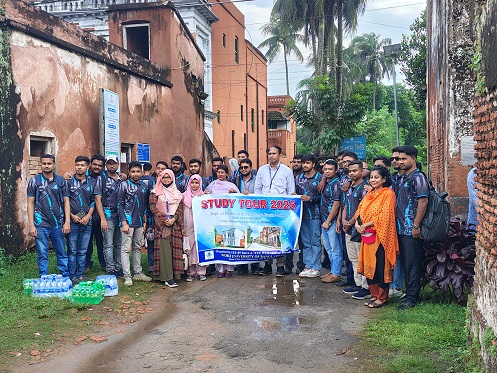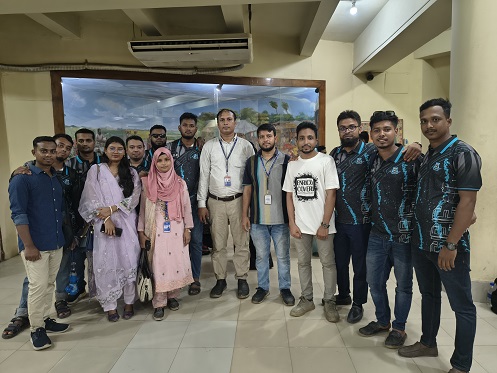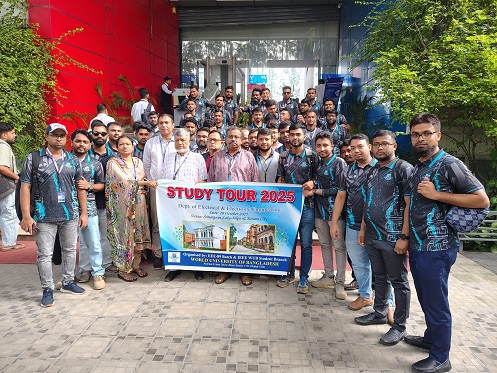A Journey Through History: Panam City and the Museum

On October
10, 2025 (Friday), a team of students from the 89th Batch of the Department of Electrical and Electronic Engineering (EEE), World University of Bangladesh (WUB),
embarked on an enriching study tour to the historical sites of Panam City and the Sultana Kamal Museum (Narayanganj Museum)
in Sonargaon, Narayanganj.
This study tour was organized to provide
students with a unique learning experience outside the classroom, helping them
appreciate Bangladesh’s rich historical,
architectural, and cultural heritage while offering a refreshing break
from their regular technical curriculum. The historical locations of Sonargaon,
once the former capital of Bengal,
served as a valuable educational setting for connecting past civilizations with
modern perspectives.
The journey began with a visit to Panam City (Panam Nagar), one of the
few remaining historical cities in the world. Students explored the ruins of
the beautiful 19th-century trading town,
once a bustling hub for muslin
and other commodities. They learned about the city’s unique architectural
styles—an elegant blend of European and
Mughal influences—and the stories of the wealthy Hindu merchants who once lived there.
Following the exploration of Panam City, the
group proceeded to the Sultana Kamal
Museum (Narayanganj Museum) located nearby in Sonargaon. The museum
visit provided a deeper understanding of folk art, traditional crafts, and cultural artifacts that reflect
rural Bangladesh’s artistic legacy. This interactive experience helped students
link academic knowledge with cultural awareness, broadening their
appreciation for the country’s heritage.
The study tour
was accompanied and supervised by:
- Dr. Md.
Riyad Tanshen, Associate Professor, Dept. of EEE
- Dr.
Md. Mohsin, Senior Assistant Professor, Dept. of
EEE
Their guidance and insights added immense
educational value to the tour, enhancing students’ understanding of history in
relation to modern society.
The study tour proved to be a memorable and educational experience,
enriching students’ perspectives by merging technical learning with historical
and cultural knowledge. The faculty members expressed their gratitude to the
organizers and local guides for their valuable contributions. The Department of EEE aims to continue
organizing such study tours in the future to foster well-rounded engineers who appreciate both technological
innovation and cultural heritage.
10 October, 2025


